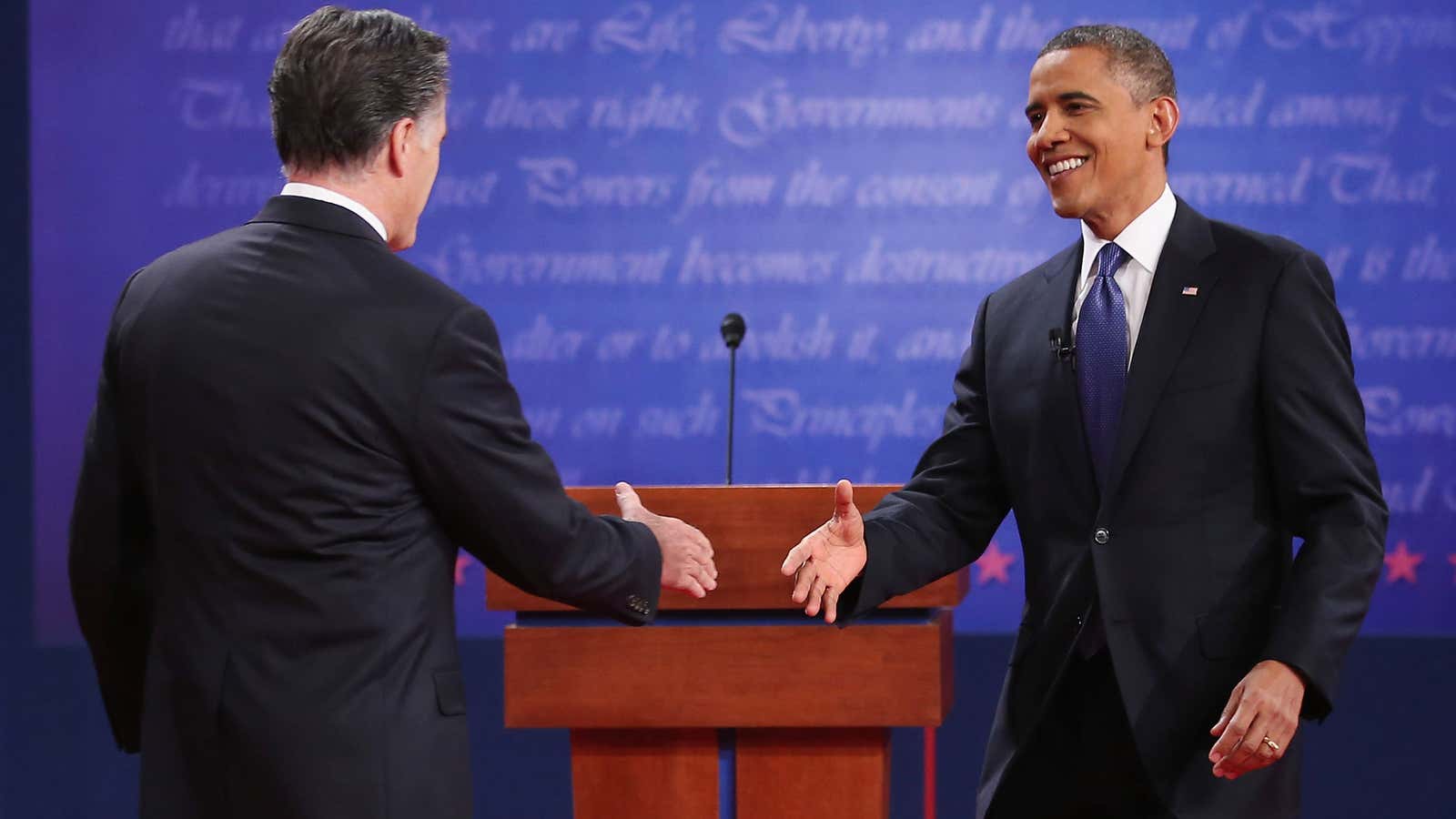Wall Street shoveled cash into President Obama’s campaign in 2008. But while he rescued the industry, bankers didn’t like his calling them “fat cats” and resented the tough new regulations imposed by the post-crisis Dodd-Frank Act (DFA). This time round, the Street has been one of the top bankrollers of Mitt Romney’s presidential campaign (banks, led by Goldman Sachs, are his top six donors) largely based on his promise to “repeal and replace” Dodd-Frank. Heck, the financial industry hired his campaign co-chairman, former Governor Tim Pawlenty, as its top lobbyist.
But the banks should prepare for a repeat: They won’t get big regulatory changes from a President Romney, either. That’s the thrust of a report from the Eurasia Group’s Dan Alamariu, which points out the differences between being a critical opposition party and actually governing. “Financial regulation is for Republicans what the Patriot Act was for Democrats in 2008: something disliked, but also something useful,” it says.
The biggest problem is that Republicans don’t have a coherent alternative to the regulatory regime. ”There is also real division within Republican ranks over financial reform, with many advocating a harder line toward large financials,” Alamariu wrote. “Some Congressional Republicans have suggested a preference for tougher Basel III implementation, and have indicated that the Volcker Rule is here to stay. Republicans are also likely to grudgingly stick with the core of the DFA’s derivatives regulation (ie. pushing many products onto clearing platforms).”
Those rules—on capital reserves, proprietary trading, and swaps transparency—are (or so the banks think, at least) some of the biggest regulatory threats to bank profits, even though they should also make the institutions crash less frequently. The sector is already moaning about the costs of complying with new rules intended to prevent hidden derivatives surprises like those of the 2008 crisis and hinder mortgage frauds like those alleged to have occurred at so many major banks.
The structural obstacles to banks getting their way under a Romney presidency are multiple. In the Senate, even if Democrats don’t maintain control of the chamber, as they’re likely to, they’ll be able to filibuster major changes to Dodd-Frank. Romney will also be distracted by a busy first-term agenda of repealing Obama’s healthcare reform law and dealing with the fiscal cliff; the prospects of tax reform and entitlement overhauls will shift focus from the financial sector.
Wall Street will still get some bang for its lobbying buck: President Romney would be able to help out through the machinery of the executive branch (hindering new rules with long cost-benefit studies) and the budget (underfunding regulatory agencies to make implementation and supervision harder). The people he appoints to run the agencies will presumably be friendly to the financial sector.
But on big issues, particularly the shape of the regulatory regime, any changes will need to be bipartisan. This means the status quo of Dodd-Frank isn’t going anywhere. But banks will keep the money flowing to both parties in Washington as they search for ways to ease back the rules.
